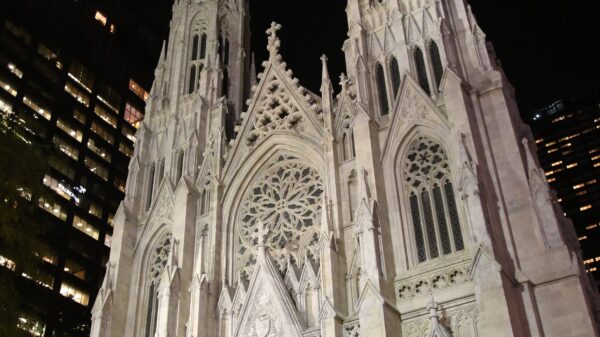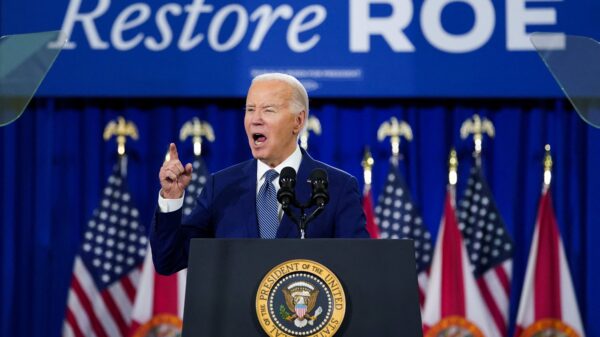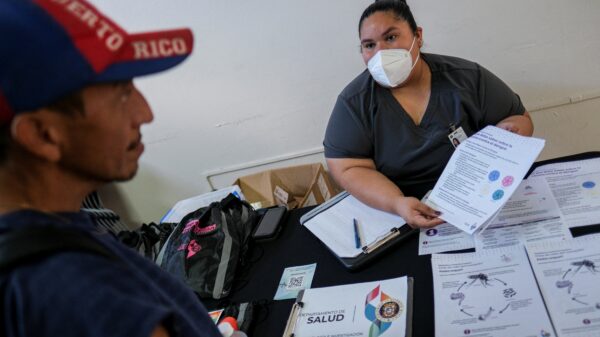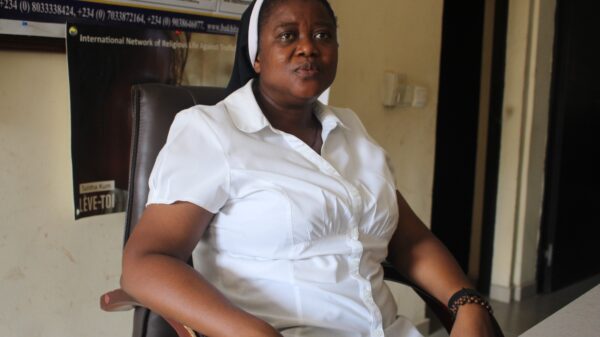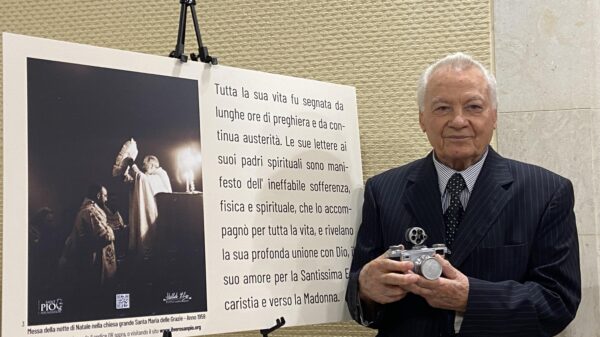(OSV News) — A proclamation from the nation’s second Catholic president on a transgender-themed occasion is causing consternation among some faithful, as the date coincides this year with Easter — and as the annual White House Easter egg art contest bans, among other things, religious symbolism.
On March 29, President Joe Biden issued his annual message for the March 31 “International Transgender Day of Visibility,” which he said “honor(s) the extraordinary courage and contributions of transgender Americans and reaffirm(s) our Nation’s commitment to forming a more perfect Union.”
The observance was created in 2009 by psychotherapist Rachel Crandall-Crocker, executive director of the advocacy group Transgender Michigan and its Transgender Michigan help line.
Crandall-Crocker recently told NPR that her goal was to create a celebratory day distinct from the Nov. 20 “Transgender Day of Remembrance.” That event was launched in 1999 to “highlight the need for awareness around anti-transgender violence,” founder Gwendolyn Ann Smith explained in a 2012 Huffington Post essay.
At the same time, the White House instructed youth participating in its traditional Easter egg art contest to refrain from designs with “religious symbols” and “overtly religious themes,” as well as “partisan political statements”; hateful and discriminatory material, and “any questionable content.”
Easter, or Pascha, is the chief religious feast in all Christian churches, commemorating the resurrection of Jesus Christ from the dead three days after his crucifixion on Good Friday. The tradition of dyed “Easter eggs” is believed to have originated with Persia’s early Christians, as a symbol of Christ’s resurrection, with the custom gradually spreading to the other Eastern and then Western churches.
Easter is a feast whose date is meant to be close to the Jewish feast of Passover — when the Gospels say Jesus’ crucifixion, death and resurrection took place — while also taking place on a Sunday. It changes each year depending on a complex calculation of spring lunar months and the solar calendar. In the Catholic Church and other Protestant churches, Easter is celebrated in 2024 on March 31; most Orthodox churches celebrate Easter on May 5 due to calendar differences.
Biden’s proclamation, the simultaneous dates of Easter and the transgender observance, and the White House contest rules combined to spark outrage on social media.
Among those weighing in was Catholic pro-life advocate Lila Rose, who wrote on X, formerly known as Twitter, March 30 that the White House “will proudly celebrate the religion of the trans cult, but ban Christian ‘symbols or themes’ on the biggest Christian holiday — Easter.
“Our ‘Catholic’ President cynically uses the faith when convenient as a selling point, and then mocks and denigrates it,” she wrote.
However, regarding the White House’s egg contest rules, Politico reports those rules have been in place for every administration since 1976 — including under Biden’s predecessor, Donald Trump.
The Trump campaign attempted to castigate Biden for the Easter egg restrictions, but then caused its stir by saying an apology was owed “to the millions of Catholics and Christians.” The Biden campaign shot back that “Catholics *are* Christians. You don’t say ‘Catholics and Christians.'” Politico pointed out the unnecessary distinction has a thorny history as some U.S. Protestant churches have argued that Catholics are not actually Christians.
According to the Catechism of the Catholic Church, “‘Being man’ or ‘being woman’ is a reality which is good and willed by God: man and woman possess an inalienable dignity which comes to them immediately from God their Creator. Man and woman are both with one and the same dignity ‘in the image of God.’ In their ‘being-man’ and ‘being-woman,’ they reflect the Creator’s wisdom and goodness.”
In March 2023, the U.S. bishops’ doctrine committee issued a 14-page statement declaring that surgical, chemical or other interventions that aim “to exchange” a person’s “sex characteristics” for those of the opposite sex “are not morally justified.”
“The human person, body and soul, man or woman, has a fundamental order and finality whose integrity must be respected,” said the committee, chaired by Bishop Daniel E. Flores of Brownsville, Texas. “Because of this order and finality, neither patients nor physicians nor researchers nor any other persons have unlimited rights over the body; they must respect the order and finality inscribed in the embodied person.”
The doctrine committee acknowledged that “many people are sincerely looking for ways to respond to real problems and real suffering.”
Nevertheless, the doctrine committee said that “any technological intervention that does not accord with the fundamental order of the human person as a unity of body and soul, including the sexual difference inscribed in the body, ultimately does not help but, rather, harms the human person.”
Gina Christian is a multimedia reporter for OSV News. Follow her on X (formerly Twitter) at @GinaJesseReina.




